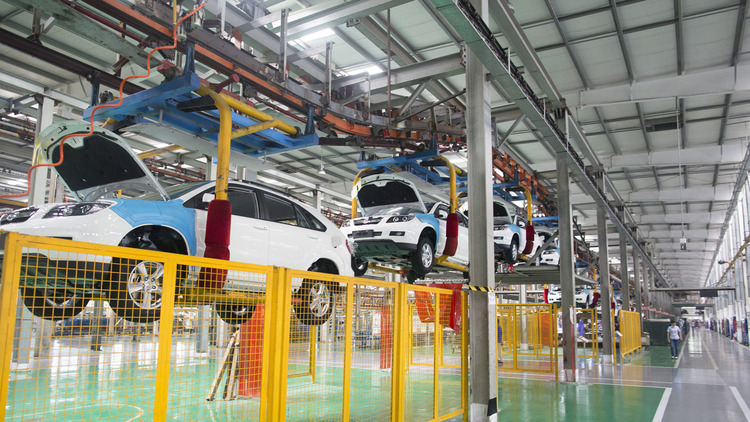- FG Targets 400,000 Locally Assembled Vehicles
The Federal Government has set an annual target of about 400,000 vehicles to be produced locally by about 45 assembly plants it has so far approved as part of its policy to encourage the production of home-made automobiles.
This indication was given on Tuesday by the Acting Director-General, National Automotive Design and Development Council, Mr. Luqman Mamudu, in a telephone interview with our correspondent.
The Chairman, Automobile and Allied Group of the Lagos Chamber of Commerce and Industry, Dr. Oseme Oigiagbe, however, warned the government against what he called booby traps that could derail effective implementation of its auto policy.
This is coming a few days after Dangote Sinotruck West Africa Limited rolled out its first set of Chinese trucks from its Lagos factory and announced that it was assembling between four and five trucks per day at its plant.
Mamudu, who recalled that as of 2015, local vehicle production capacity was about 300,000 with utilisation put at 15 per cent, said, the installed capacity had improved with more firms getting the government’s nod to establish assembly plants.
He, however, said the operating capacity had suffered significantly because of shortage of foreign exchange and other unpleasant economic variables.
“With the entry of Alhaji Aliko Dangote, Africa’s richest man, and Anambra Motor Manufacturing Company into the industry assembling Sino trucks and Shacman trucks, respectively, we have improved our installed capacity from about 300,000 to 400,000 vehicles per annum.
“More companies have received approval to assemble new brands in Nigeria. For instance, Globe Motors has signed an agreement with Hyundai Motors; Chief MKO Abiola’s son has also brought in a Chinese brand that will be assembled in the country and Weststar Associates is discussing with Fiat.”
PricewaterhouseCoopers has projected that the nation’s auto industry should produce about four million cars annually by 2050.
The Federal Government under Goodluck Jonathan introduced the auto policy in the last quarter of 2013, which included the imposition of 70 per cent tariff on imported cars and zero per cent on vehicles’ components imported by local assembly plants to encourage local production of automobiles.
But delivering this year’s Transport Day lecture in Lagos, Oigiagbe warned that until the auto industry was made a priority of the government, it might not achieve its set goals.
He spoke on ‘The Nigeria auto policy — moving forward or Stagnant’ and said that “the trust of the national automotive policy was to ensure the survival, growth of the Nigerian automotive industry using local, human and material resources. This is with a view to enhancing the industry’s contribution to the national economy, especially in the areas of transportation of people and goods.”
According to him, all 45 new licensed entrants are mostly Chinese companies, adding that the big firms such as General Motors, Toyota and Ford have not really embraced the project, “unlike South Africa where the like of GM, BMW, Ford Toyota and Volkswagen plants are established by the OEM as direct investment.”
He also noted that the project was mostly centred on Semi-Knocked Down simple operations with low value addition; little or no technology transfer and lack of structured distributor/dealer network to support after-sales.
Like Mamudu, Oigiagbe noted that the policy met a financial hurricane/recession with naira fall and the exchange rate/dollar scarcity.
He said there was a need to complete the ban on importation of used vehicles on the imposition of very high import tariff on them to discourage people from bringing them in.
He also said, “The policy needs to become an Act — passed into law by the National Assembly so that investor confidence can be guaranteed.”

 Forex3 weeks ago
Forex3 weeks ago


 Naira2 weeks ago
Naira2 weeks ago
 Billionaire Watch2 weeks ago
Billionaire Watch2 weeks ago




 Naira2 weeks ago
Naira2 weeks ago




 Naira2 weeks ago
Naira2 weeks ago




 Naira1 week ago
Naira1 week ago




 Naira3 weeks ago
Naira3 weeks ago




 Naira4 weeks ago
Naira4 weeks ago






















